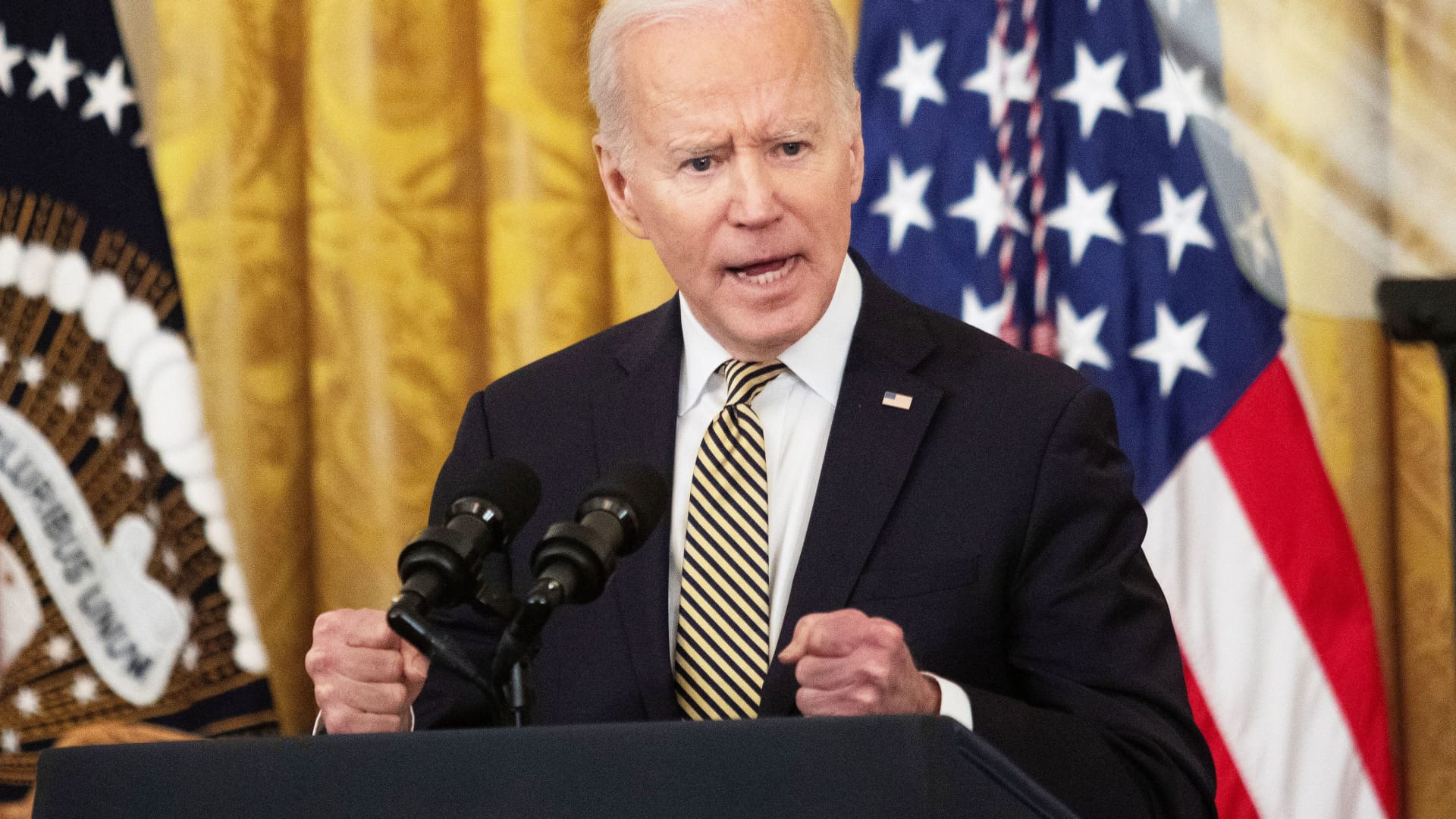WASHINGTON — President Joe Biden held a nearly two-hour phone call on Friday morning with Chinese President Xi Jinping to discuss Russia’s invasion of Ukraine.
The call was seen as a critical test of whether Biden could convince China to stay on the sidelines of the conflict in Ukraine, and to turn down Russian requests for military or economic aid.
Both Biden and Xi agreed on the need to promote peace and assist with the humanitarian disaster created by the invasion. But they disagreed deeply on who is responsible for the suffering in Ukraine, with the Chinese leader refusing to hold Russia singularly accountable for the unprovoked invasion.
Instead, official readouts from Beijing made it clear that Xi’s position was that the U.S. and Europe had provoked Russian President Vladimir Putin into attacking Ukraine by expanding NATO into Eastern Europe.
Biden’s warning for Xi
During the call, Biden “described the implications and consequences if China provides material support to Russia,” the White House said.
Pentagon officials said last week that Moscow has asked Beijing for military and economic assistance to wage its war against Ukraine, and that initial intelligence reports suggested China had agreed.
Following the call Friday, neither Chinese nor American officials would say whether Biden had shifted Xi’s thinking on Russia in any way.
The White House stressed that Biden’s goal had never been to secure assurances directly from Xi that China would not help Russia, merely to clarify the choices facing Beijing.
“The President really laid out in a lot of detail the unified response, not only from governments around the world but also the private sector, to Russia’s brutal aggression in Ukraine,” a senior administration official told reporters on Friday afternoon.
Biden “made clear that there would likely be consequences for those who would step in to support Russia at this time,” said the official, who spoke on the condition of anonymity.
Beijing’s view of Ukraine
According to a readout of the call from the Chinese Ministry of Foreign Affairs, Xi told Biden that the United States and China each had an obligation to promote peace in Ukraine.
“The Ukraine crisis is not something we want to see,” Xi reportedly said to Biden.
But even as he decried the human cost in Ukraine of Russia’s invasion, Xi still refused to directly blame Putin or the Kremlin for what is happening there.
Instead, Xi suggested Europe and the United States forced Putin’s hand — echoing one of Moscow’s favorite talking points.
“He who tied the bell to the tiger must take it off,” Xi said to Biden, according to a longer readout of the call released by the Ministry of Foreign Affairs.
The Chinese idiom is one that Xi has used before, and it means that whoever created the problem must solve it. In Xi’s view, Putin is the tiger and NATO tied the bell.
For now, however, China said Xi told Biden its pressing priorities are “to keep the dialogue and negotiation going, avoid civilian casualties, prevent a humanitarian crisis, and cease hostilities as soon as possible.”
To that end, Beijing is “ready to provide further humanitarian assistance to Ukraine and other affected countries,” the state readout said.
The Chinese government said Xi also referenced a “six-point initiative on the humanitarian situation in Ukraine,” but the foreign ministry did not provide details on what that would entail.
Still, the mere fact that China will provide humanitarian assistance to Ukraine is a sign that, at least on the surface, Xi’s ironclad alliance with his ally Putin may be under strain.
Russia’s isolation
Spokesmen for both the Russian and Chinese governments publicly deny that Russia has reached out to China for help waging its war against Ukraine.
But the unprecedented economic sanctions imposed on Russia by NATO members and G-7 countries in response to the invasion have left the Kremlin isolated and, some analysts say, desperate for financial assistance and military supplies.
Defense officials said China appeared to be open to supplying Russia with military supplies, but there are few indications so far that China will overtly help Moscow evade economic sanctions.
Beijing has little interest in becoming embroiled in the economic battle between Russia and the rest of the developed world.
“China is not a party to the crisis, nor does it want the sanctions to affect China,” Foreign Minister Wang Yi said during a phone call Monday with Spain’s foreign minister, Jose Manuel Albares.
The call between Biden and Xi began just after 9 a.m. Eastern and lasted just shy of two hours. That’s an unusually long time for a presidential call with the leader of a U.S. adversary.
Xi and Biden “share the view that China and the US need to respect each other, coexist in peace and avoid confrontation, and that the two sides should increase communication and dialogue at all levels and in all fields,” the Chinese readout said.
